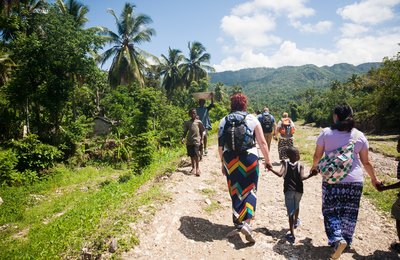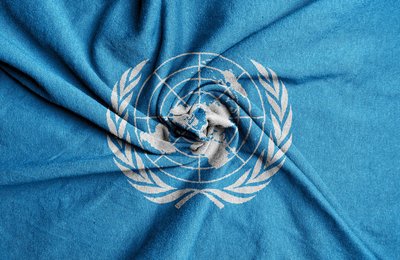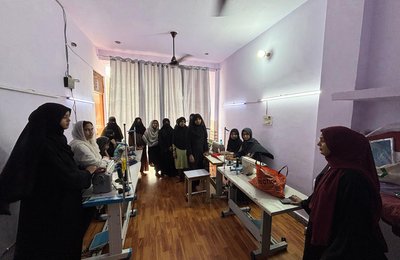 Image credit: UNMIL Photo/Staton Winter
Image credit: UNMIL Photo/Staton WinterThink of the exercise as stepping into a river – a river that was flowing before you arrived and will continue to flow after you leave. That river is the work of local people building peace.This was the message that Nathaniel Walker, Peace Direct’s Liberia Local Correspondent, and I were trying to get across, as we developed a ‘local ownership’ strand in the Viking peacekeeping simulation that begins this week. Viking is an international exercise that happens every three years in Europe, with this year being the largest and most complicated. Staff from NATO, BFOR (the EU force) and the UN join with army personnel from Sweden, Serbia, Georgia, Ireland and Bulgaria to plan the event, which will have participants from many more countries, including civilians as well as military.
Viking has its surreal aspects. The imaginary country in conflict, Bogaland, is overlaid over central Sweden, leading one participant in the planning team to exclaim – ‘This is the town I grew up in, and now it’s under siege by the militia. I can’t get my mind round this!’ Names are also all Swedish, in order to preserve the neutrality of the scenario, so a militia leader originally titled Magic Leroy had to be renamed, rather improbably, as Major Svensson.
The job of the four-person local ownership team, in the last planning session in February, was to introduce story elements that would prompt the participants to consider how local people could be involved in the peacekeeping activities. Story elements could be newspaper articles or ‘injects’ – phone calls or incidents that require a response from the participants.
We worked on a number of dimensions:
- The involvement of local authorities: for example, a message from the town mayor, asking why she had not been involved in the decision to retake a key bridge from rebel forces.
- The use of local leaders to prevent incidents from escalating: for example, when a militia leader arrives on the UN’s doorstep with 400 men demanding to be integrated into the army as a bloc, should force be used? Should a trusted local leader mediate? Should the Bogaland Head of the DDR Commission be involved? What strategies are most likely to escalate as opposed to de-escalate violence?
- The involvement of local NGOs in assisting the return to normality: for example, through trust-building exercises between members of a polarised community, persuading militia leaders to disarm, taking responsibility for the reintegration of former combatants, using the media to reduce tensions and keep the population informed.
As I write, participants are preparing to grapple with choices about who they consult, who they trust and how they choose between the use of force and mediation. My colleague Nathaniel is on hand to play local roles, ranging from local and central government officials, to informal local leaders and peace activists. If we can move the dial a little on participants’ expectations of the role that locals can play in keeping their own peace, it will be worthwhile.
This article was also published on the Local First blog. Local First is an approach to international development that prioritises the views and leadership of people and organisations in the countries affected, over those of outsiders from the international community.









